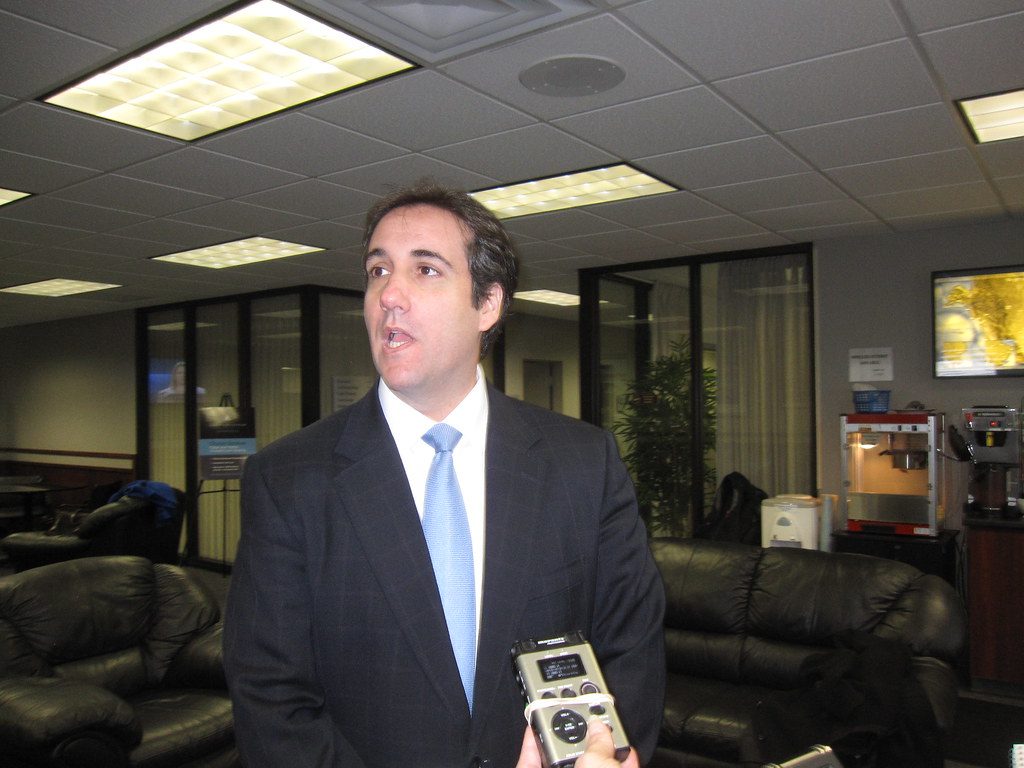Former U.S. attorney who prosecuted white-collar crimes for nearly a decade explains what Michael Cohen’s expected cooperation with federal prosecutors means for Trump.
CNN legal analyst and former federal prosecutor Renato Mariotti has an impressive resume, to include service as a federal prosecutor in the Securities and Commodities Fraud Section of the United States Attorney’s Office.[1]
Citing unnamed sources, ABC News reported on Wednesday that Trump’s former personal attorney was likely to cooperate with federal prosecutors. Cohen has been under criminal investigation for months and leading legal experts have been reporting the last few days that his arrest is around the corner.
CNN legal analyst and former federal prosecutor Renato Mariotti painted a grim picture for Trump in a Twitter thread discussing what the potential cooperation of Cohen means for the separate investigation being led by Special Counsel Robert Mueller and his team.
THREAD: What does the potential cooperation of Michael Cohen mean for the Mueller investigation?
— Renato Mariotti (@renato_mariotti) June 13, 2018
Mariotti began, writing on the likelihood of Cohen flipping, tweeting: “It’s not surprising that Cohen is moving towards cooperation, if the @abcnews reports are correct. When the FBI executes a search warrant at your home and office, you’re in trouble. The judge in the Stormy Daniels case concluded Cohen is likely to be charged, and he’s right.”
According to Mariotti, “Cohen is cooperating with federal prosecutors in Manhattan” but “cooperation deals typically require the cooperator to provide all information about any criminal activity he knows about. Prosecutors then share that info with other jurisdictions,” in this case, Robert Mueller.
There were questions raised regarding attorney-client privilege in regards to evidence seized from Cohen’s home, office, and hotel room (his home was being remodeled and he was living in a hotel at the time of the FBI raid).
Turning to the issue of privilege, Mariotti wrote that: “There are ample examples of attorneys who are prosecuted—I tried and convicted one—but when they cooperate, everyone involved needs to make sure attorney-client privilege is respected.”
Continuing, Mariotti explained that: “Most conversations involving criminal activity likely won’t be privileged because they don’t involve legal advice. Only conversations about legal advice are privileged. A conversation about legal advice isn’t privileged if the advice is used to further the crime. That last sentence is called the “crime/fraud” exception to attorney-client privilege. It’s more limited than some commentators suggest, but combined with the fact that most criminal conversations aren’t about legal advice, likely few of Cohen’s conversations were privileged. It’s also worth noting that federal prosecutors allege that Cohen didn’t practice law much, and thus far the documents they seized are consistent with that allegation. The retired judge reviewing the Cohen documents found that less than 1/10th of one percent were privileged.”
He concluded his analysis, predicting that – however things play out – Cohen’s cooperation with prosecutors could be potentially devastating to Team Trump.
“So if Cohen cooperates, he will have to tell almost all of what he knows about criminal activity to federal prosecutors, who can share that info with Mueller, other federal prosecutors, and state prosecutors” he tweeted, adding that: “Cohen’s cooperation is a blow to the Trump team and could strengthen the case Mueller is building. How much it helps Mueller depends on what Cohen knows and how forthcoming he is.”
Footnote 1: As his official bio notes:
During his nine years at the U.S. Attorney’s Office for the Northern District of Illinois, Renato tried more than a dozen criminal trials and prosecuted a wide array of white-collar crimes, including commodities and securities fraud, spoofing, cybercrime, bank fraud, investor fraud, health care fraud, mortgage fraud, tax evasion and Internet pharmaceutical sales. Renato has also briefed and argued numerous appeals before the United States Court of Appeals for the Second, Seventh, and Ninth Circuits.
[…]
Renato is an in-demand media source, legal analyst, and commentator on major national news events. He is a CNN Legal Analyst and has been quoted in the New York Times, Time Magazine, and the Washington Post. He has also written for publications such as New York Times, Washington Post, Newsweek, and Politico.


You must be logged in to post a comment Login